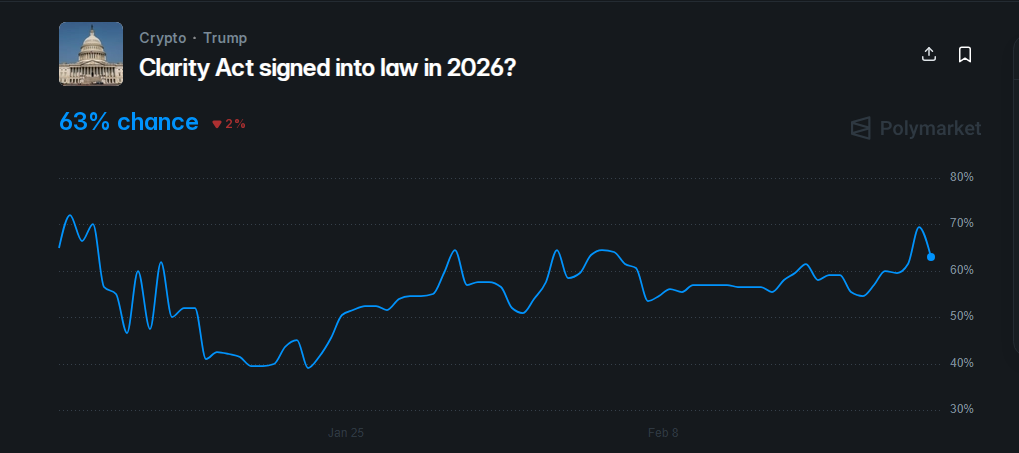Bitcoin, often known as digital gold, has acquired popularity as a speculative asset as well as a potential store of wealth and hedge against economic downturns. As speculation about an approaching recession grows, concerns about Bitcoin's resiliency and ability to withstand economic storms emerge. Lets examine the dynamics of Bitcoin in the face of a possible recession and seek advice from industry professionals.
Bitcoin's So Far Journey
Bitcoin, which was created over a decade ago by the pseudonymous Satoshi Nakamoto, was regarded with suspicion and uncertainty at first. It has, however, defied expectations by obtaining widespread acceptability and drawing an increasing number of investors, institutions, and organizations.
One of Bitcoin's distinguishing features is its decentralized nature. It runs on a blockchain network managed by a distributed network of nodes rather than a central authority. This decentralization, paired with a limited number of 21 million coins, has established Bitcoin as a digital alternative to traditional fiat currencies, which are susceptible to inflationary pressures.
Bitcoin's Spot Trading Volume Hits Five-Year Low Amid Recession Fears
Bitcoin's spot exchange trading volumes have plummeted to their lowest levels in nearly five years, reflecting heightened macroeconomic uncertainty that has made investors cautious. A recent report from CryptoQuant, an on-chain analytics platform, highlights the decline in daily BTC volumes on spot exchanges, which have not seen a significant rebound.
The report attributes this decline to two primary factors: the U.S. government's crackdown on the cryptocurrency industry and growing fears of an impending recession. These concerns have led investors to adopt a cautious approach, with daily Bitcoin transactions showing no signs of resurgence.
Challenges for Short-Term Holders
Conversely, the past few months have posed challenges for short-term Bitcoin holders (STHs). While long-term holders continue to accumulate Bitcoin, holding nearly 75% of the entire supply, the supply held by short-term holders hit a multi-year low of 2.56 million BTC last month.
Despite the challenging market conditions, Bitcoin's fundamental market indicators remain robust. The hash rate has surged by an impressive 661% in the last two years. Additionally, with the next Bitcoin halving on the horizon, data analysis suggests that investors may need to exercise patience for the next bullish phase.
Bitcoin as a Recession Hedging Tool
One of the key justifications for Bitcoin's longevity during a recession is its ability to act as a hedge. Historically, traditional hedges such as gold and government bonds have been sought desired during economic downturns. Bitcoin is frequently compared to gold owing to its rarity and ability to store value.
Bitcoin supporters believe that its restricted quantity and position as "digital gold" make it an appealing option for investors seeking refuge from economic turmoil. During times of uncertainty and currency depreciation, some people resort to Bitcoin to retain money and protect their assets from the loss of purchasing power.
Considerations and Obstacles
While Bitcoin's potential as a hedge is enticing, investors and regulators must examine the following obstacles and considerations:
- Price Volatility: Bitcoin's price has historically been quite volatile. While volatility might provide opportunities for traders, it can also turn off risk-averse investors.
- Regulatory Framework: The regulatory framework for cryptocurrencies is continually evolving. Government actions and regulations have the potential to have a significant impact on the bitcoin market.
- Market Sentiment: Market sentiment, news, and social media trends can all have an impact on Bitcoin's price. This can result in dramatic price changes.
- Adoption and Liquidity: The usefulness of Bitcoin as a hedge is dependent on its adoption and liquidity. Bitcoin's position as a store of wealth may strengthen as acceptance expands.
- Diversification: A key risk management method is to diversify one's financial portfolio. Bitcoin should be viewed as a component of a diversified portfolio, not as the single buffer against recession.
Conclusion
The topic of whether Bitcoin will survive the next economic downturn is complicated and multidimensional. While Bitcoin has showed promise as an economic hedge, it is not without danger. Bitcoin's performance is influenced by price volatility, regulatory uncertainty, and market sentiment.
As the global economic environment evolves, Bitcoin's status as a digital asset and potential store of value will almost certainly be called into question. Investors must perform extensive research, determine their risk tolerance, and select a diversified investing strategy that corresponds with their financial objectives.
Finally, whether Bitcoin can weather the storms of a recession is unknown. However, its resiliency and growing acceptability in mainstream finance indicate that it will continue to pique the curiosity and debate of investors, economists, and policymakers in the coming years.
This article was written by Pedro Ferreira at www.financemagnates.com.
You can get bonuses upto $100 FREE BONUS when you:
💰 Install these recommended apps:
💲 SocialGood - 100% Crypto Back on Everyday Shopping
💲 xPortal - The DeFi For The Next Billion
💲 CryptoTab Browser - Lightweight, fast, and ready to mine!
💰 Register on these recommended exchanges:
🟡 Binance🟡 Bitfinex🟡 Bitmart🟡 Bittrex🟡 Bitget
🟡 CoinEx🟡 Crypto.com🟡 Gate.io🟡 Huobi🟡 Kucoin.
















Comments